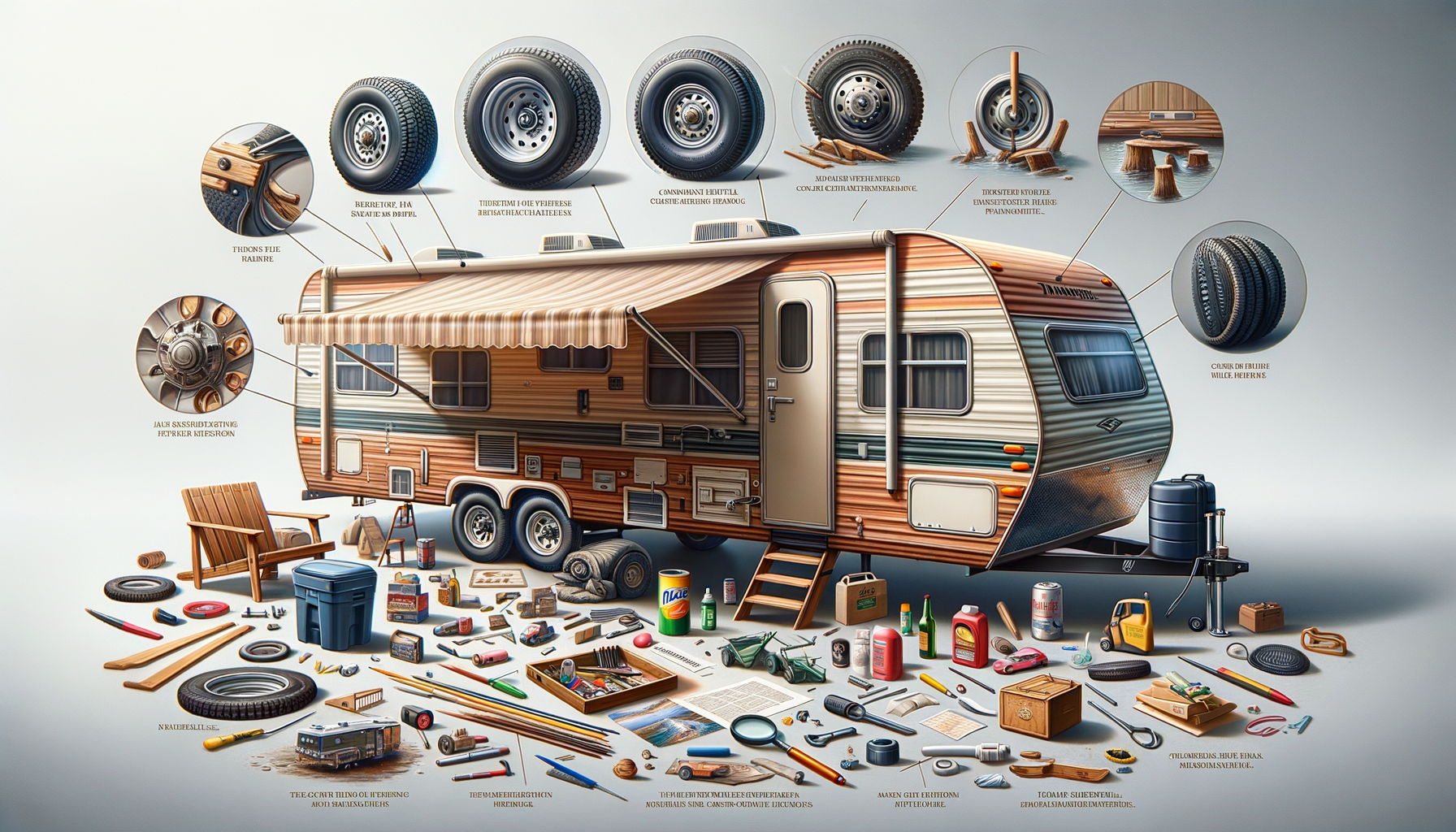Introduction to Buying a Used Travel Trailer
Purchasing a used travel trailer can be an excellent way to enjoy the freedom of the open road without breaking the bank. However, it requires careful consideration and attention to detail to ensure you make a wise investment. This guide will walk you through the essential aspects of buying a used travel trailer, including what to look for, how to inspect it, and common issues you might encounter.
What to Look For When Buying a Used Travel Trailer
When embarking on the journey to buy a used travel trailer, there are several critical factors to consider:
- Size and Layout: Consider the size of the trailer and its layout to ensure it meets your needs. Think about the number of people it will accommodate and the type of trips you plan to take.
- Condition of the Exterior: Examine the exterior for any signs of damage, such as dents, rust, or cracks. Pay special attention to the roof, as leaks can cause significant issues.
- Interior Features: Check the condition of the appliances, furniture, and fixtures. Ensure everything is in working order and meets your comfort standards.
- Price and Value: Research the market value of similar models to ensure the asking price is fair. Consider the age, condition, and features of the trailer when evaluating its value.
By carefully assessing these factors, you can find a trailer that suits your needs and budget, providing a reliable home on wheels for your adventures.
How to Inspect a Travel Trailer Before Purchase
Inspecting a travel trailer before purchase is crucial to identify any potential issues that could lead to costly repairs. Here’s how to conduct a thorough inspection:
- Check the Chassis and Frame: Look for any signs of rust or damage on the chassis and frame. Ensure the trailer is structurally sound and that there are no signs of previous accidents.
- Test the Electrical Systems: Verify that all electrical components, including lights, outlets, and appliances, are functioning correctly. Faulty wiring can be a significant safety hazard.
- Inspect the Plumbing: Test the plumbing system by running water through the taps and checking for leaks. Ensure the water heater is operational and that the waste systems are in good condition.
- Examine the Tires and Brakes: Check the condition of the tires for wear and tear. Ensure the brakes are responsive and in good working order.
Taking the time to inspect these elements can help you avoid unexpected repairs and ensure your travel trailer is ready for the road.
Common Issues Found in Older Travel Trailers
Older travel trailers can offer great value, but they often come with their own set of challenges. Here are some common issues to be aware of:
- Water Damage: Leaks can lead to significant water damage, affecting the structural integrity of the trailer. Look for signs of water stains, mold, or soft spots in the walls and floors.
- Outdated Appliances: Older trailers may have outdated appliances that are inefficient or no longer functioning. Consider the cost of replacing these items when evaluating the trailer.
- Wear and Tear: General wear and tear on the interior and exterior can indicate how well the trailer has been maintained. Check for signs of neglect, such as peeling paint or worn upholstery.
- Electrical and Plumbing Issues: Older trailers may have outdated electrical and plumbing systems that need upgrading. Ensure these systems are safe and functional.
Being aware of these common issues can help you make an informed decision and negotiate a fair price for the trailer.
Conclusion: Making a Wise Investment
Buying a used travel trailer requires a keen eye and thorough inspection to ensure a sound investment. By understanding what to look for and how to inspect the trailer, you can avoid common pitfalls and enjoy the freedom and adventure that comes with owning a travel trailer. Whether you’re a seasoned traveler or a newcomer to the RV lifestyle, this guide provides the insights you need to make an informed purchase and hit the road with confidence.




Leave a Reply